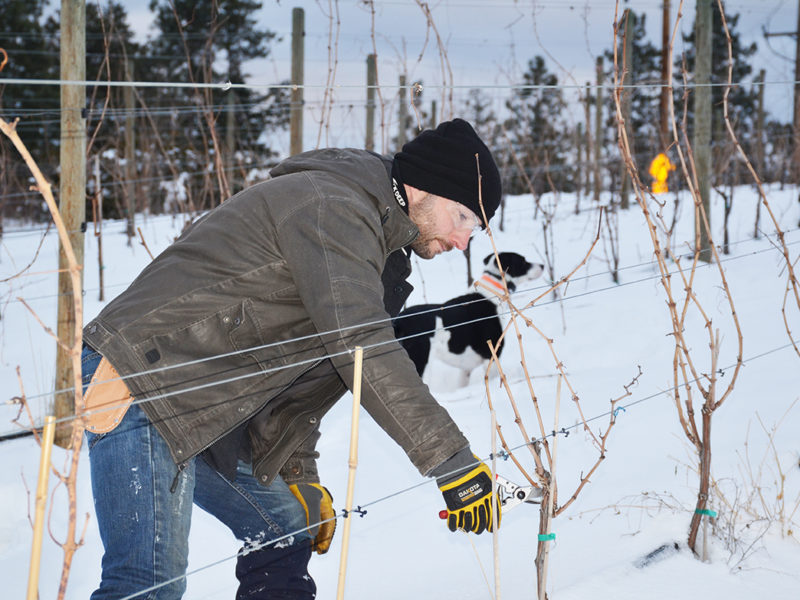Grape growers are assessing damage from a late December cold snap that hit the central and northern Okanagan Valley.
“Winter temperatures in the hills surrounding Kelowna and areas to the north dipped below -27°C over the Christmas holidays,” Brad Estergaard, viticulture research technician at the Summerland Research and Development Centre told growers in a special email memo.
Working with a decade worth of data, Estergaard estimated that buds could handle temperatures between -23°C and -25°C, but anything colder could cause more than 50% damage. “Widespread winter bud and vine damage is unfortunately to be expected,” he warns.
Samples collected December 21 from the Kelowna area showed that 50% of Pinot Noir buds would be killed at -24.4°C and Riesling buds would suffer the same losses at -24.9°C.
Those are two top varietals for Tantalus Vineyards in southeast Kelowna.
“We recorded -24.5,” says Tantalus vineyard manager Felix Egerer, who was busy assessing the damage in early January.
“I cut sample canes and bring them inside to warm up for two days and then I cut open the buds to see if they have died. I also look for tissue damage to see if the vine itself has suffered freezing,” he explains.
Egerer says it’s too early to know the full extent of damage. Different areas of the vineyard and different varieties will show a range of effects, and vineyard access is hampered by 60 cm of snow.
“Our most mature RiesIing vines are over 40 years old,” he notes. “I am hoping we will be able to save them.”
Egerer says properties further north saw colder temperatures, with Harper’s Trail Estate Winery on the South Thompson River near Kamloops reporting -30°C.
Properties south of Peachland were largely spared. While temperatures at Kelowna reached -27°C on December 27, Penticton was -21°C and Osoyoos only -16°C.
Growers will share damage estimates and mitigation techniques at a workshop the BC Grapegrowers Association is hosting January 13 focused on bud damage.


 ‘Blue Cow’ signals happy cows
‘Blue Cow’ signals happy cows